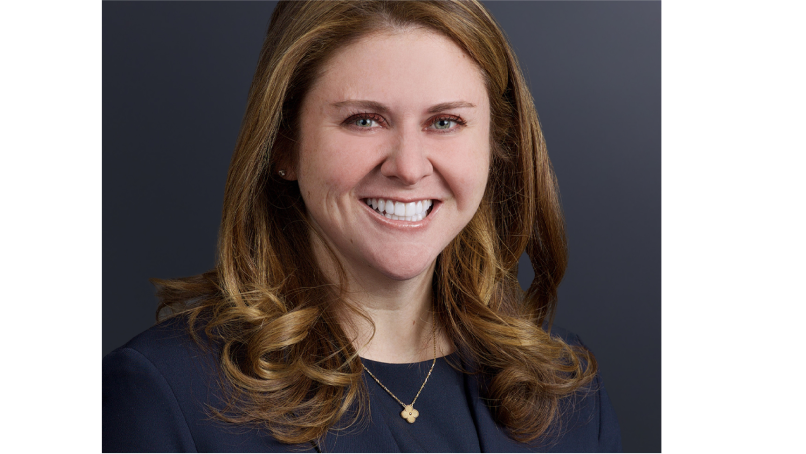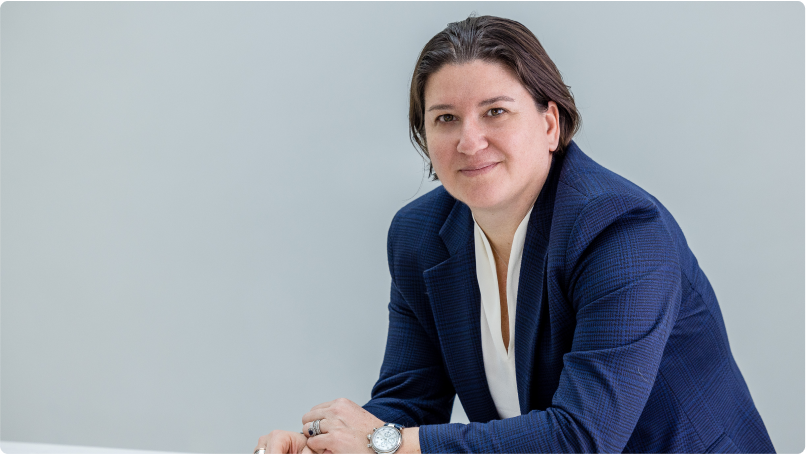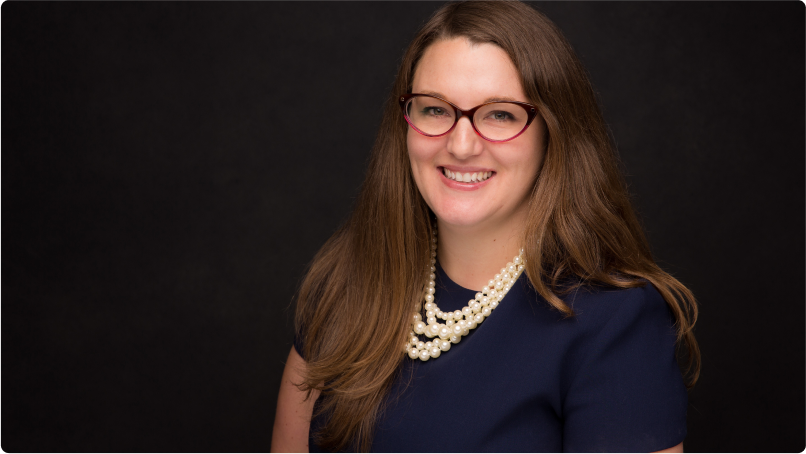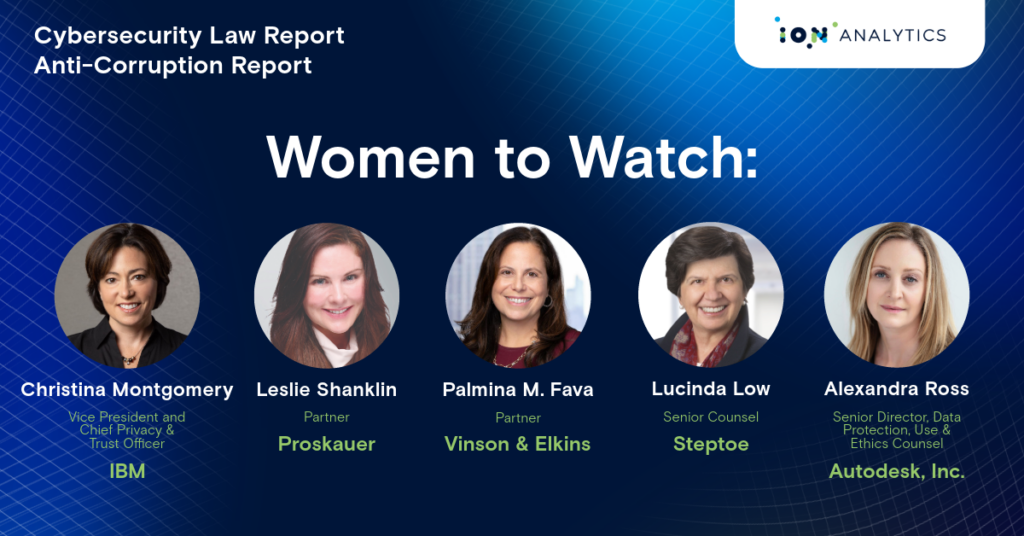Women to watch: contributions, achievements and observations of outstanding female professionals – Part V
In honor of International Women’s Day, various women at ION Analytics, including Marlene Star at Mergermarket and Dealreporter, Jill Abitbol, managing editor of the Cybersecurity Law Report and Anti-Corruption Report, Sara Tapinekis and Madalina Iacob at Debtwire in the US, Dawn Grocock at Debtwire’s UK office and Lucy Monteiro, who covers the Latin American region for Debtwire, interviewed outstanding women in their respective jurisdictions and the markets that they cover. It is our honor to highlight these women and their accomplishments and contributions to their industries and share some of their insights and perspectives. These lawyers, advisors and consultants from around the world specialize in private equity, restructuring, mergers and acquisitions, hedge funds, anti-corruption, data privacy, and more. We hope these remarkable women inspire you as much as they do us.
In Part V of this six-part series, Debtwire’s co-managing editor Madalina Iacob helps us spotlight notable women in the investment and restructuring fields, including (i) Holly Etlin, a partner & managing director, at Alix Partners, (ii) Rachel Murray, a managing director at Moelis, (iii) Jaime McKenzie Forsyth, partner, head of the investment team at Monomoy Capital Partners, (iv) Lale Topcuoglu, managing director and head of credit at Swiss Re, (v) Molly Jobe, a senior director at FTI Consulting, and (vi) Kathleen Lauster, CFA, a senior managing director at Ankura Capital Advisors.
To view Part I of the ION Analytics’ Spotlight on Trailblazing Women series, please click here.
To view Part II of the ION Analytics’ Spotlight on Trailblazing Women series, please click here.
To view Part III of the ION Analytics’ Spotlight on Trailblazing Women series, please click here.
To view Part IV of the ION Analytics’ Spotlight on Trailblazing Women series, please click here.
Holly Etlin, Partner & Managing Director, Alix Partners

Holly is a skilled executive with over 30 years of experience in providing turnaround services for companies in the retail, distribution, consumer products, financial services, media, and hospitality industries. Holly is a Certified Turnaround Professional; and is admitted to the American College of Bankruptcy and the International Insolvency Institute. In 2007, the Turnaround Management Association (TMA) recognized Holly with its Turnaround of the Year Award for the successful turnaround of Winn-Dixie Stores, Inc. In 2011, TMA once again recognized Holly with its Transaction of the Year Award for the successful refinancing of Neff Rental. Holly was named Woman of the Year in Restructuring in 2014. She once again won the TMA Turnaround of the Year award for her work on BCBG MaxAzria in 2017.
What are the biggest changes you’ve seen since you started in the industry?
When I started in the industry over 30 years ago, the term CRO did not exist. We worked in companies primarily as Interim CFOs or CEOs. While the creation of the position does not seem all that important, it signified the legitimization of the turnaround profession and of the profession as a career path.
What do you see as the most notable issue or trend right now in the industry, and do you recall what a big issue or trend was when you started out?
When I started out there were still many people practicing who had worked when the Bankruptcy Code did not exist, so the use of the Code to structure large corporate turnarounds was a relatively new thing. The biggest issue we face now is the cost of the process. The standards of hiring multiple professionals for every major constituency have resulted in large-scale Chapter 11 cases becoming almost unaffordable.
Women have made tremendous strides in our industry over the past 20 years. What would you like to see more of for women, professionally?
Women have made great strides in restructuring, particularly the fields of law and commercial banking. We still see fewer women CROs, FAs and investment bankers. I would like to see more women in the core business side of the profession, and in debt funds, independent directors, etc. Having women at the table reflects the changing face of corporate America.
Rachel Murray, Managing Director, Moelis

Rachel Murray is a Managing Director at Moelis & Company, where she specializes in Capital Structure Advisory for companies, sponsors, and creditors across a wide range of industries. She has extensive experience in in-court and out-of-court recapitalization and restructuring transactions with a specialized focus on Chapter 11 reorganizations, exchange offers, consent solicitations and distressed financings.
Prior to joining Moelis & Company, Rachel worked in the financial services practice at Deloitte. She holds an M.B.A. from The Wharton School at the University of Pennsylvania, a Masters in Accounting from the Leventhal School at the University of Southern California and an A.B. in Government from Harvard.
What are the biggest changes you’ve seen since you started in the industry?
During my career, I’ve witnessed remarkable strides in representation across corporate America as evidenced by the level of diversity we see in our clients, management teams and board rooms. The restructuring industry still has some catching up to do.
What do you see as the most notable issue or trend right now in the industry, and do you recall what a big issue or trend was when you started out?
The sheer volume of non-pro rata deals (or lender-on-lender violence as it’s commonly referred to) has increased dramatically compared to when I first got started in restructuring. The focus used to be on simply “fixing” capital structures, but now we’re seeing increasing levels of majority groups enhancing their positions at the expense of others. While sometimes it works, many times it’s nothing less than a stopgap solution that has led to an influx of complex capital structures. It’s been interesting to see such a dramatic shift in behavior – when I first started, the “creative” liability management type transactions were viewed as extremely aggressive, but now they are par for the course.
Women have made tremendous strides in our industry over the past 20 years. What would you like to see more of for women, professionally?
I’d like to see the number of women in investment banking keep pace with the remarkable growth we’ve seen in our legal, consulting and buy-side counterparts.
Jaime McKenzie Forsyth, Partner, Head of the Investment Team, Monomoy Capital Partners

Jaime has led a number of Monomoy’s most successful equity and debt transactions since she joined the firm in 2008. In addition to managing deal execution, Jaime manages the investment team and leads various continuous improvement initiatives.
Jaime was awarded Top 40 Under 40 Growth Investor by GrowthCap and Top Woman Dealmaker by Global M&A Network in 2022. Jaime joined Monomoy from Bear, Stearns & Co. Inc., where she was an investment banking analyst in the leveraged finance group. Jaime holds a B.S. in Commerce from the University of Virginia, with concentrations in Finance and Accounting. She also speaks Italian and is a classical pianist.
What are the biggest changes you’ve seen since you started in the industry?
It is remarkable how much private equity markets and firms have evolved over the last 16 years since I joined the industry. The most notable changes include an increased focus on DEI, increased prevalence in “operationally-focused” firms, and the increased importance of business development functions within an organization.
When I joined this male-dominated industry in 2008, DEI wasn’t even discussed. Now, I am heartened by the attention this critical topic receives across the industry, within PE firms and at their portfolio companies. Further, the evolution of a firm’s approach to driving operational change is fascinating. Hands-off ownership and cookie-cutter operating models appear to be things of the past as PE firms now take a more active role with their companies, customizing the operational support they provide. Finally, as market cycles have shifted throughout my career, the importance of business development has become increasingly obvious. Today, many private equity firms, Monomoy included, invest in developing BD teams to work in tandem with the investment team and serve as the front line in sourcing investment opportunities.
What do you see as the most notable issue or trend right now in the industry, and do you recall what a big issue or trend was when you started out?
The increased cost of debt continues to have far-reaching impacts within the industry. At the most basic level, fewer deals are coming to market, and fewer deals are completed. Many managers are adjusting their underwriting criteria to account for the increased cost of financing while also striving to meet targeted return hurdles. The expectation to deploy capital has been increasing as deal flow continues to be muted. From what we’re tracking at Monomoy, the rate of failed auction processes increased dramatically from 2022 to 2023, reflecting the stress financing costs have caused in the market. In addition, managers face pressure to show realizations as many go out and fundraise. Given the difficulty of selling businesses in this environment, we’re also seeing non-traditional exits (like continuation vehicles) or more structure (like rollover, including sponsor-to-sponsor or contingent payments) embedded in deals.
I began my career on the buy side in June of 2008 when I joined Monomoy as an Analyst from Bear Stearns, where I had a front-row seat to the GFC. It was an interesting time for the market, and deep restructurings were extremely common. As part of this volatile environment in which I evaluated investment opportunities, I had to filter out the good businesses with bad balance sheets from the bad businesses that may not have had a reason to exist. As time transpired, developing a downside modeling case that tested a company’s resilience, cash flows and variable cost structures became a requirement for every deal we reviewed.
Women have made tremendous strides in our industry over the past 20 years. What would you like to see more of for women, professionally?
Efforts to broadly improve female representation across financial services and in private equity are worth celebrating, but significant work is still necessary. Prioritizing organized mentorship and networking programs for women is critical for attracting and retaining talented, diverse employees. These candidates need to see that PE is a viable career path, not just for a short-term job opportunity and firms need to offer access to resources that can demonstrate and support employees’ professional development. Recent data indicates that we are approaching gender parity for entry-level PE candidates, but the gap widens as employees approach the VP level and beyond. I believe a structured support system will provide a path for women to climb the ranks on equal footing alongside their male colleagues.
Lale Topcuoglu, Managing Director and Head of Credit at Swiss Re

Lale is a Managing Director and Head of Credit at Swiss Re. In her role, she is responsible for steering the firm’s investments in global credit markets. She comes to Swiss Re after spending three years as Senior Fund Manager and Head of Credit at J O Hambro Capital Management. Previously, she spent 17 years at Goldman Sachs in various leadership roles, where she invested across credit and equity markets. She started her career as a sell-side research analyst in 1999 at Goldman Sachs and was named Managing Director in 2010. Lale earned a BA in Economics and Politics, cum laude, from Mount Holyoke College. She lives in Montclair, NJ with her wife and two children.
What are the biggest changes you’ve seen since you started in the industry?
Back in the late 1990s, I started on a sell-side trading floor, and as a female newbie, I can tell you that it was hard to find a role model that I could truly identify with. It was a male-dominated environment, and the term inclusion, if it was ever mentioned at all, often meant finding a topic, mostly sports-related, that could be dropped into casual conversations so that you could feel “included” in the trading floor banter. I am pleased to say that a lot has changed since then, and in my current role with Swiss Re I see every day that it has become much easier to be different. Thankfully many firms no longer have that cookie-cutter mindset and are employing and integrating a diverse range of people because, put simply, they recognize that such an approach yields better business outcomes.
What do you see as the most notable issue or trend right now in the industry, and do you recall what a big issue or trend was when you started out?
When meeting a group of professional female colleagues an acquaintance of mine often quips that “it is nice to have friends in middle places”. While meant to be lighthearted, it does highlight the fact that not enough of us reach those “high places”. Indeed, the feeling of being stuck in mid-level careers is still a real issue for both women and minorities, just as it was when I started out. At school or when beginning a new job, we are told to work hard, and success will follow. The reality is that effort does not always equate to outcomes. Of the many variables that can shape a career the manager you have plays a key role. A good manager will spot your potential and support your growth, but it takes two to tango and you must have the drive, determination, and confidence to move ahead too. Looking back, I think the importance of a good line manager as well as the benefits of networking has not really changed that much. It can still be a challenge, but in my current role, I see that what has changed is the willingness of firms to support various employee resource groups and training to support line managers.
Women have made tremendous strides in our industry over the past 20 years. What would you like to see more of for women, professionally?
What I have observed in my career is that generally speaking senior women who make it to the top give back less. I understand that our lives are busy and that balancing work and personal commitments does not get easier as you move up the ladder. However, there is something to be said for sharing triumphs as well as failures with those coming up behind. We could learn so much from each other. So, my plea to senior women is to carve out time to mentor more, give back more, attend networking events, and encourage and advise the women who are early or mid-level in their careers and struggling to figure out how to move forward.
Molly Jobe, Senior Director FTI Consulting

Molly Jobe has over 10 years of experience in turnaround management, operational restructuring, performance improvement and transaction support. Her expertise includes profitability and liquidity management, creditor management and negotiation, organizational redesign, transaction (pre and post) integration, wind-down management, capital sourcing and lender workout.
Molly utilizes her diverse project management experience in operations, human resources and marketing/sales to partner with clients to develop solutions that drive operational restructurings and turnarounds. She has previously served in Interim COO, Interim Communications Director and Wind-Down Officer roles. Her industry experience includes hospitality, restaurants, consumer products, distribution, not-for-profits and professional services firms.
Currently, Molly is President Elect for Turnaround Management Association New York City. She has previously held roles on the Secured Finance Network’s Young Professional Committee and the American Bankruptcy Institute’s Emerging Leaders Committee (Northeast). Molly is the recipient of the 12th Annual Emerging Leaders Award from M&A Advisor. She holds a B.A. in Political Science from the University of Colorado at Denver.
What are the biggest changes you’ve seen since you started in the industry?
I believe one of the biggest changes I have seen in the industry since I started in 2014 is the amount of firms that now have focused programs for supporting, developing and mentoring young women in their technical, leadership and business development skills. There are far more resources today to assist women in becoming future partners and leaders in the industry. Additionally, professional organizations have concentrated on building safe places for women to establish and grow their network, as well as gain trusted professional partners.
The Turnaround Management Association established its Network of Women committee 10 years ago this year and IWIRC celebrated its 30th anniversary last year. Both organizations have provided critical networking, educational and referral source opportunities for myself and many women in the industry. Additionally, these organizations along with many firms (including my own firm, FTI Consulting) now have initiatives for young women in the industry to see their career as a viable long-term option and encourage the development of future leaders.
One of the biggest impacts of these changes is there are now more voices in the room speaking up and demonstrating to women that no matter what their priorities, hobbies, or long-term goals are, they can find a path forward in the industry.
What do you see as the most notable issue or trend right now in the industry, and do you recall what a big issue or trend was when you started out?
A current notable issue is the increasing reliance on AI and data analytics to facilitate more efficient and effective transformations. Restructuring and turnaround consulting traditionally involves complex processes aimed at reviving struggling businesses, optimizing operations and restoring financial health. However, these processes often require extensive data analysis, modeling and strategic decision-making, which can be resource-intensive and tedious. I believe many consulting firms are currently struggling with how to explore and evaluate the use of AI automation or increased data and analytics tools to drive efficiency while navigating client confidentiality issues and maintaining profitability.
When I first started out, technology was top of mind for the industry in a different way. This was shortly after the launch of the iPhone and other related products that supported constant connectivity and the 24/7 work mentality, particularly for client needs. That connectivity certainly only increased throughout the pandemic, when work and life blended together, driven by further technology use.
Women have made tremendous strides in our industry over the past 20 years. What would you like to see more of for women, professionally?
The term “imposter syndrome” has become quite cliché in recent years; however, it is a real issue that almost everyone (men and women alike) has struggled with at some point in their careers. Two of my mentors, who have been in the industry for decades, told me their imposter syndrome still kicks in when preparing for a new client case. With each new engagement, they wonder if they will be able to effectively help the client and solve their problems this time around. Both of these women have strong, established records doing just that – fixing, turning around, and successfully restructuring businesses.
Imposter syndrome is not something that we speak about openly at all levels. I believe that if we did, it would help combat those feelings and insecurities, and ultimately allow us to be stronger teammates and better equipped for our clients. Simply knowing that many of us often feel inadequate can help silence the negative voices in our heads.
We need women who are already established in their careers to lead by example and be willing to speak openly regarding these issues, even providing real-time examples. This attitude will encourage more women to ask questions, adapt to difficult situations and challenging clients and be comfortable with being uncomfortable.
Kathleen Lauster, CFA, Senior Managing Director, Ankura Capital Advisors

Kathleen Lauster, CFA, is a Senior Managing Director at Ankura Capital Advisors LLC, based in New York. Kathleen guides clients with capital raising, M&A strategy, and financial restructuring. Her focus is on sectors such as industrials, business services, consumer products, secondary sales, real estate, and other hard assets, along with restructuring and special situations. She leverages her deep financial background and extensive industry relationships to create accelerated access to investment capital and perform value-added capital advisory.
What are the biggest changes you’ve seen since you started in the industry?
Moore’s Law is a well-known principle from the tech world stating that computer processing power doubles approximately every two years. This observation serves as an apt metaphor for the exponential growth and rapid change in the capital markets and financial services that I have witnessed over the course of my career.
First, the trend toward globalization and consolidation has been unmistakable. I began my career at a time when the Glass-Steagall Act was just beginning to weaken, and interstate banking became legal. Bank mergers were exploding, and large money-center banks were just beginning to form. Fast forward to today, and financial markets have become increasingly interconnected, leading to a global flow of capital that has blurred the lines between domestic and international markets.
Secondly is the noticeable rise in alternative investments. There has been a marked increase in non-traditional asset classes such as private equity, private debt, venture capital, and hedge funds, along with ever more creative underwriting and investment structuring. These innovations have juiced the market and opened the doors for smaller and earlier-stage companies to access the needed capital to grow their business. It has also provided a lifeline to companies who face short-term liquidity challenges or other setbacks, enabling them the chance to “live to see another day”.
Finally, we are all benefiting from greater access to information. It is almost unfathomable to think back to my early career days when we were beholden to print media and cable news, which was still in its infancy. Internet and digital platforms have made real-time data and analytical tools accessible to a broader range of investors, enhancing market transparency and efficiency. However, this increased access also comes with challenges, such as navigating the sheer volume of information and safeguarding against misinformation and data security breaches.
These changes collectively represent a significant evolution in the capital markets, affecting how investments are made, how capital is raised, and how markets are regulated. They reflect both the opportunities and challenges posed by technological advancements and shifting global dynamics.
Technological innovation marches on, and while I have witnessed much change over the course of my career, we are only in the early days of this evolution. Most notably, AI presents numerous opportunities for growth and change in the capital markets, undoubtedly much of which we still cannot imagine.
What do you see as the most notable issue or trend right now in the industry, and do you recall what a big issue or trend was when you started out?
Someone recently described AI to me as “where boring tasks go to die”. AI can automate routine tasks such as data entry, financial modeling, and report generation, leading to increased efficiency and reduced human error. This will allow investment bankers to focus on higher-value activities like client relationship management and strategic decision-making.
But more importantly, AI has the capability of managing large datasets and identifying patterns. The greater access to information I’ve seen over the course of my career has often been overwhelming. AI has the potential to make sense out of this chaos, providing more accurate market forecasts and insights, helping the market make better-informed decisions and more precise price-discovery.
I believe embracing these changes while learning to manage the inherent risks will give companies and their advisors a competitive advantage as we proceed through the 21st century.
Women have made tremendous strides in our industry over the past 20 years. What would you like to see more of for women, professionally?
In many ways, much has changed for the better in terms of women’s professional prospects over the course of my career. But the progression has not been equal across industries, and there are certain sectors that unfortunately have not changed much.
Asset management continues to lag in gender diversity. According to a recent analysis by Oliver Wyman, females represent just 13% of all portfolio managers in North America. And from my personal experience, it is rare to come across a woman with investment authority in an alternative asset firm.
And yet, this is despite numerous studies that profess the benefits of increased diversity offers by both investment firms and their clients. The insight provided by diver’s perspectives leads to improved performance, better risk management, improved market representation, and overall better decision-making as different viewpoints challenge conventional thinking, preventing echo chambers and promoting a more critical evaluation of investment choices.
I would like to see this vestigial glass ceiling shattered. I believe this is possible, and it starts with graduate recruitment to fill the funnel for future generations. Personally, I have spent time mentoring young women to consider a career in asset management, and my hope is that as these women develop and grow in their careers this gender disparity will eventually go the way of the slide ruler (a mechanical calculator that was obsolete even far before my time!).









